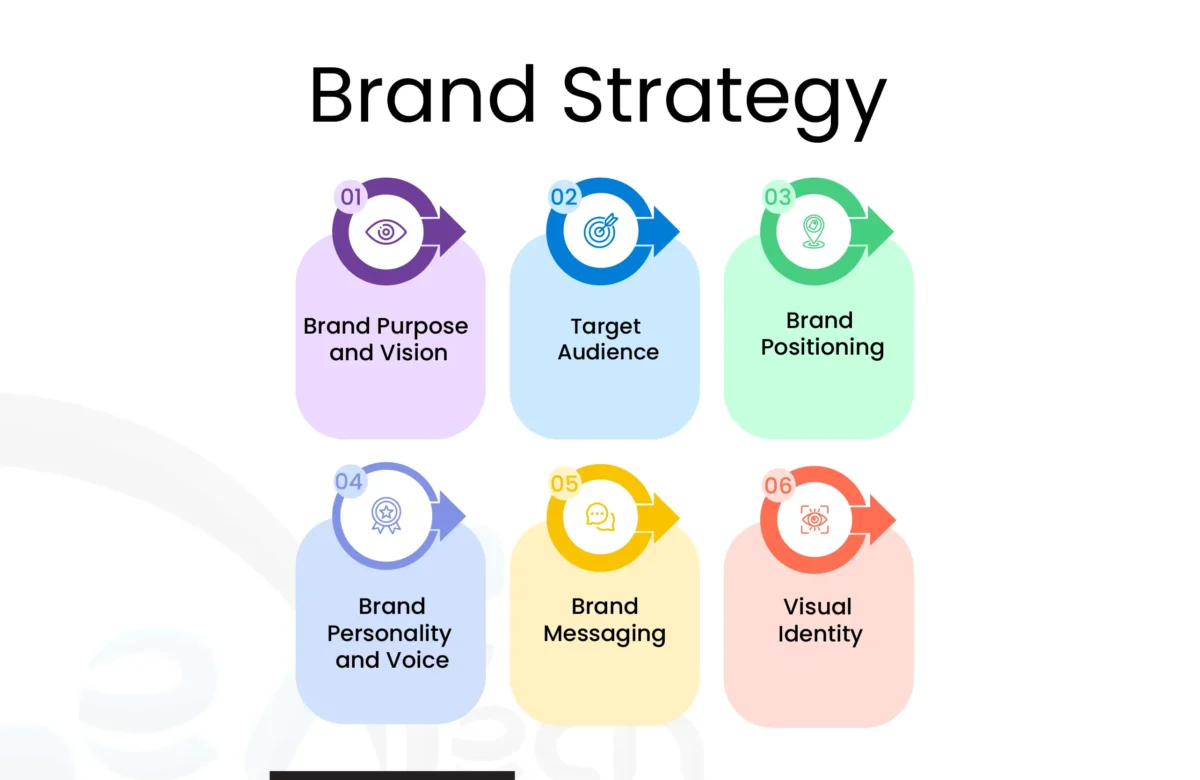Software development is one of the fastest-growing fields globally, offering many career opportunities for those passionate about technology and problem-solving. From creating apps to building complex systems, software developers play a critical role in today’s digital world. In this guide, we’ll explore software development career paths, skills required, job growth potential, and tips on starting your journey.
Definition and Overview of Software Development Careers
Software development is the process of designing, creating, and maintaining software applications and systems. A career in software development can vary widely, depending on your interests, skills, and goals. Some developers work on consumer apps, while others design systems that support businesses and organizations.
Software development is both technical and creative, as it requires programming skills and innovative thinking to solve problems and create user-friendly solutions. Careers in a software development agency often offer flexibility, good compensation, and the opportunity to work across different industries.
Types of Programming Careers
Software development offers many career options, each focusing on different programming specialties and project types. Here are some popular career paths:
1. Web Developer
Web developers create websites and web applications. They work on both the front end (what users see) and the back end (server-side functionality). Web developers use languages like HTML, CSS, JavaScript, and frameworks like React and Angular to build responsive, interactive sites.
2. Mobile Developer
Mobile developers specialize in creating applications for mobile devices, such as smartphones and tablets. They design apps for operating systems like iOS and Android, using languages like Swift, Kotlin, and Java. Mobile application developers build the apps we use every day, from social media platforms to banking tools.
3. Software Engineer
Software engineers develop a wide range of applications, from desktop software to large systems for businesses. They use programming languages like C++, Java, and Python to build robust, high-quality software. Software engineers often focus on problem-solving, performance optimization, and maintaining software stability.
4. Data Scientist
Data scientists analyze data to gain insights and support decision-making. They work with machine learning algorithms, statistical models, and large datasets to uncover patterns and trends. Data scientists use Python, R, and specialized tools for data analysis, often working in fields like finance, healthcare, and tech.
5. DevOps Engineer
DevOps engineers bridge the gap between development and operations teams. They focus on automating processes, improving collaboration, and ensuring software runs efficiently. DevOps engineers use tools like Docker, Kubernetes, and Jenkins to streamline development workflows and manage deployments.
6. Game Developer
Game developers design and build video games for consoles, PCs, and mobile devices. They use game engines like Unity and Unreal Engine, along with programming languages like C and C++. Game developers create interactive, immersive experiences for players worldwide.
7. AI/ML Engineer
AI/ML engineers specialize in artificial intelligence and machine learning. They develop algorithms that enable computers to learn from data and make decisions. AI/ML engineers work on applications like virtual assistants, recommendation systems, and predictive analytics, using tools like TensorFlow and Python.
Each programming career offers unique opportunities and challenges, allowing you to choose a path that matches your skills and interests.
Skills Required for a Successful Software Development Career
To succeed in software development, you need a blend of technical and soft skills. Here are some of the most important:
1. Programming Languages
Proficiency in programming languages is essential for software development. The languages you learn depend on your career path, but some common languages include Python, Java, JavaScript, C++, and SQL.
2. Problem-Solving Skills
Software development involves finding solutions to complex problems. Strong problem-solving skills help you identify issues, develop creative solutions, and troubleshoot errors in code.
3. Analytical Thinking
Analyzing data, understanding patterns, and interpreting user needs are all part of the development process. Analytical thinking helps you design software that meets specific requirements and optimizes performance.
4. Communication Skills
Software developers often work in teams, so clear communication is essential. Being able to explain technical concepts to non-technical team members and collaborating with others ensures projects run smoothly.
5. Attention to Detail
Even small mistakes in code can lead to major issues. Attention to detail helps you catch errors, write efficient code, and deliver high-quality software.
6. Adaptability
The tech world changes quickly, with new tools and languages constantly emerging. Adaptability allows you to stay updated, learn new skills, and remain relevant in the industry.
By developing these skills, you’ll be well-prepared for a successful career in software development.
Job Outlook and Growth Potential in Software Development
Software development is one of the most in-demand fields, with strong growth potential in the coming years. According to the U.S. Bureau of Labor Statistics, employment for software developers is projected to grow 22% from 2020 to 2030, much faster than the average for other occupations. This growth is driven by the increasing need for digital solutions across industries.
Industries like finance, healthcare, education, and entertainment rely heavily on software, creating a consistent demand for developers. Emerging fields like artificial intelligence, data science, and cybersecurity further expand job opportunities, making software development a promising career with ample room for growth.
Educational Requirements for Software Developers
To start a career in software development, most employers prefer candidates with a bachelor’s degree in computer science, software engineering, or a related field. However, there are alternative pathways if a degree isn’t feasible. Here’s an overview of common educational paths:
- Bachelor’s Degree – A degree in computer science or software engineering provides a solid foundation in programming, algorithms, and system design.
- Coding Bootcamps – Coding bootcamps offer intensive, short-term training in specific programming skills. Many bootcamps focus on web development, mobile development, or data science and are a popular choice for career changers.
- Online Courses and Certifications – Platforms like Coursera, Udacity, and edX offer courses in various programming languages and software development specialties. Certifications demonstrate your skills to potential employers.
- Self-Study – Many developers are self-taught, learning through books, online resources, and hands-on practice. Building a portfolio of projects can showcase your abilities and make up for the lack of formal education.
While education is important, experience, projects, and skills often carry significant weight. Building a strong portfolio and gaining real-world experience through internships or freelance projects can open doors in the industry.
Software Engineering Career Growth in the United States
In the United States, software engineering is a lucrative and high-demand field. Entry-level positions offer competitive salaries, and with experience, software engineers can move into more specialized roles or management positions. Here’s a snapshot of career growth potential:
- Entry-Level – Junior developers start with roles in coding, debugging, and testing. These positions provide foundational experience and mentorship opportunities.
- Mid-Level – Mid-level developers often take on more responsibility, including leading small projects, mentoring juniors, and contributing to design decisions.
- Senior-Level – Senior software engineers handle complex projects, system architecture, and strategic decisions. They may also manage teams and work closely with stakeholders.
- Management and Leadership – Some engineers move into management, becoming project managers, team leads, or chief technology officers (CTOs). These roles involve overseeing projects, budgets, and team performance.
Career growth in software engineering depends on skill development, networking, and experience. With the right approach, software engineers can advance quickly, enjoying both job satisfaction and financial rewards.
The Future of Software Development Careers
The future of software development looks promising, with rapid technological advancements opening new career opportunities. Here are some trends shaping the future of the field:
- Artificial Intelligence and Machine Learning – AI and machine learning are transforming industries, creating demand for specialists in AI development and data science.
- Cybersecurity – As cyber threats grow, the need for cybersecurity professionals increases. Skills in secure coding and ethical hacking will be highly valuable.
- Cloud Computing – Cloud technology is integral to business operations, creating a need for developers with cloud expertise, especially in AWS, Google Cloud, and Azure.
- Blockchain Technology – Blockchain has applications beyond cryptocurrency, including finance, supply chains, and secure data sharing, making it a growing field for developers.
- Remote Work and Collaboration – With the rise of remote work, software developers are likely to work in distributed teams. Skills in remote collaboration and cloud-based tools will be essential.
The future of software development is exciting, with opportunities for specialization and innovation in various tech areas. Staying updated with these trends will give you a competitive edge.
Starting Your Journey in Software Development
Starting a career in software development can seem overwhelming, but with the right approach, you can make steady progress. Here are some tips to get started:
- Learn the Basics – Begin with a programming language that aligns with your career goals. Python, Java, and JavaScript are good options for beginners.
- Build a Portfolio – Work on projects that showcase your skills, from simple coding exercises to complete applications. A portfolio is essential for demonstrating your abilities to potential employers.
- Practice Problem-Solving – Platforms like LeetCode, HackerRank, and Codewars offer coding challenges to improve your problem-solving skills and technical abilities.
- Stay Updated – Follow industry news, trends, and new technologies. The tech field changes rapidly, so continuous learning is key to staying competitive.
- Network and Connect – Join online communities, attend tech meetups, and connect with other developers on LinkedIn. Networking can lead to job opportunities and valuable advice.
- Consider Internships or Freelance Work – Gaining practical experience through internships or freelance projects can boost your resume and help you apply your skills in real-world settings.
A career in software development offers diverse paths, exciting opportunities, and a bright future for those passionate about technology. With high demand across industries and the potential for continuous growth, software development is an excellent field for both new and experienced professionals. By understanding the career options, necessary skills, and educational paths, you can make informed decisions and embark on a fulfilling journey in software development!
FAQs
Which career is best for software development?
Popular careers in software development include Full-Stack Developer, Mobile App Developer, Software Engineer, and Data Scientist. These roles offer diverse opportunities and growth in various tech industries.
What are software development careers?
Software development careers include roles such as Front-End Developer, Back-End Developer, DevOps Engineer, Game Developer, and AI Engineer. Each career focuses on specific areas within software and application creation.
What is the pathway to be a software developer?
To become a software developer, start by learning programming languages (like Python or Java), gain experience through projects or internships, and consider obtaining a degree in Computer Science or a related field. Continuous learning and building a portfolio are essential.


